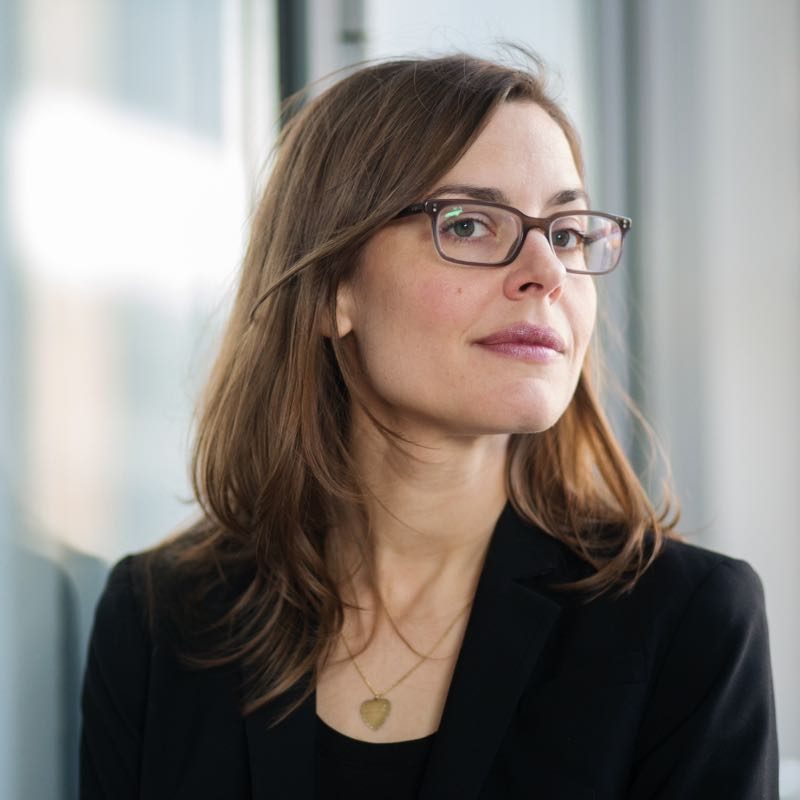An Interview with Lear deBessonet
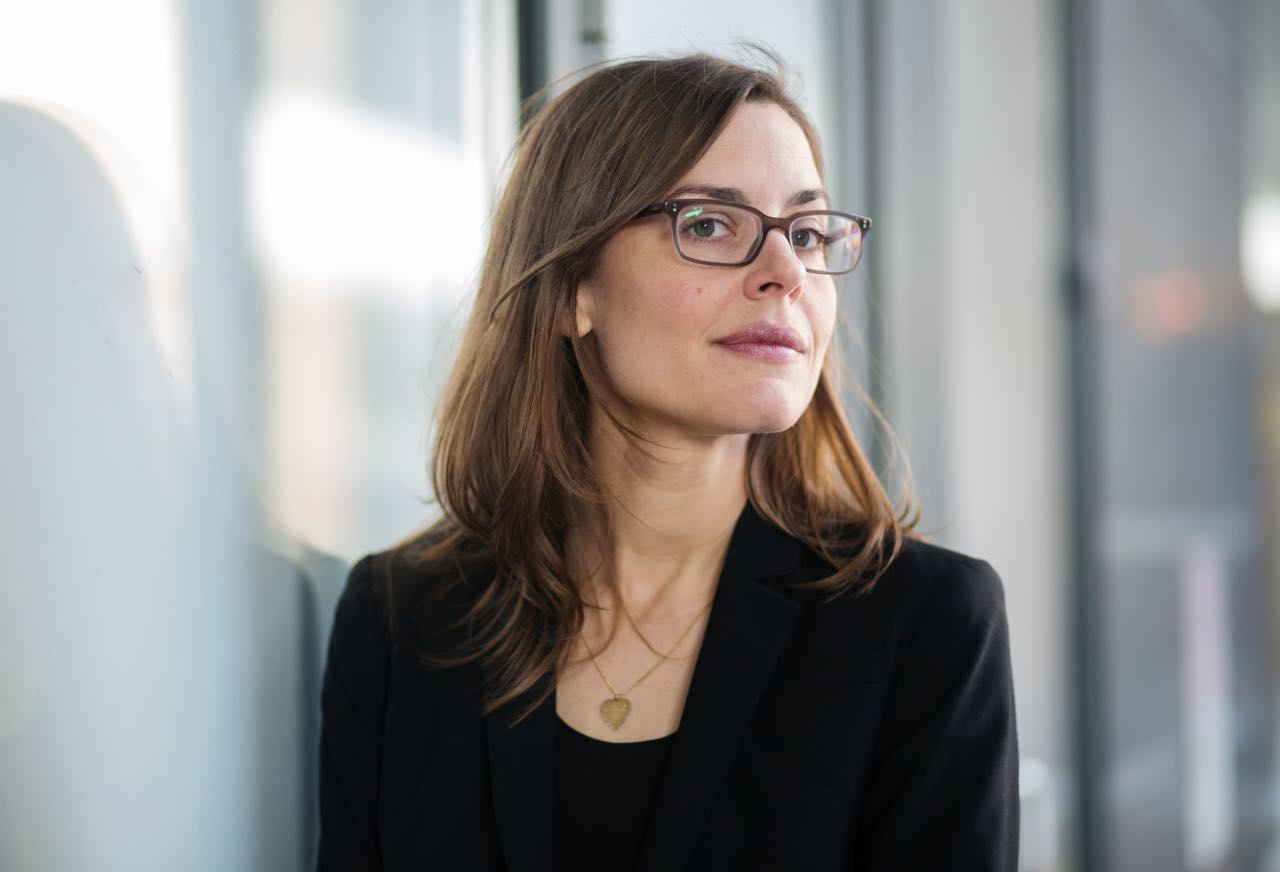
Written by Victoria Myers
Photography by Tess Mayer
May 15th, 2017
In 2013, The Public Theater launched Public Works, a program that brought together community organizations and professional actors to create large-scale theatre pieces based on classic works with the aim of using imagination to bring people together and make theatre accessible. Since its inception, the program has been headed by director Lear deBessonet. As both Artistic Director—and sometimes director—of Public Works productions, she has helmed some of the largest and most diverse productions in New York City, and was once described as having “missionary zeal,” possibly being a witch, and having very shiny hair, all in the same New York Times article (no doubt a first for the Times). She is currently directing a revival of Venus, Suzan-Lori Parks’ symphonic meditation on performance and love at Signature Theatre, where Lear once again deploys her skill at creating Technicolor, hermetic worlds. We recently sat down with her to discuss her process for Venus, Public Works, her spiritual life, and more.
When they came to you and asked you to direct Venus, did you feel like you had an immediate thought of, “I know how to put this on stage. I know what to do with this,” or were you like, “This is kind of terrifying, but yes”?
I have loved this play for a very long time. I think any director that did not feel some measure of terror would not be paying attention. The play is a gorgeous challenge. I knew that going in, and I didn’t feel like I had pre-existing solutions of how to bring it to life. I just knew that I had a love of it and a love of Suzan-Lori as both an artist and a person. Therefore I leapt at the chance to do it.
Where did you start? What was your way into the play?
Suzan-Lori talked very passionately about her idea that this is a story about love, and that is an incredibly complicated notion, and one that, to me, makes the play much more difficult, much more thorny, if there is a presence of real love. I think that both the cruelty and the inhumanity, and also the beauty and the tenderness are amplified by bringing some heart to it because the circumstances of the play are devastating.
It’s a very visual production. When you had your first meetings with the designers, how did you work on that aspect?
It is a very visual production. I feel like part of what this show is looking at, among the layers, is performance and theatricality, because there are layers of performance. There is the play within the play that is a mirrored, warped reflection of part of the main storyline. Then there are also these elements of looking and being looked at: voyeurism and titillation, and also the performance of gender and race. Performance is thematically central to the story. To that end, we were interested in a production that would be visually vivid, but there’s no question that the text is at the forefront of the production and the intentions of the production. I feel like I could imagine a version of this play with nothing, where it is only people speaking these words, because I think Suzan-Lori’s words are powerful enough to do that. But we were very excited, in terms of uniting all of the elements to tell this story. Even the fact that the genre of the play, in my opinion, switches a couple of time. We tried to reflect that in the set.
Especially for a play like this, is it hard when you have to make all those design decisions so early in the process?
Yes. This show is a good example of a principle that I think is always true, which is that you want all of the design elements to be harmonious with one another and to be creating some interesting tension with one another, but fundamentally making a universe that is coherent in its own way, even if that’s a very strange or a very disturbing universe. That requires a lot of communication between all of the departments. Especially within the challenge of making theatre in New York, where everyone is busy. I think that finding enough mental and emotional real estate to get the entire team to wrap themselves around the material in advance to do that work is a great challenge. I love these designers and obviously, Suzan-Lori.
For you, dramaturgically, on your first day of rehearsal, how far ahead of everyone else do you feel like you have to be?
I do an extreme amount of preparation, especially with a play like this, because it is reconciling the styles of the play. We talked a little bit in rehearsal about the idea that the play had an accordion of styles. There was the most naturalistic and then the most stylized, and that in rehearsal we were going to need to experiment with where the various scenes needed to live on that spectrum. We only had three weeks of rehearsal, which is, for a play with this many elements, a big challenge. What’s interesting is I can look back to notes that I made a year ago about this production, and even stick figure drawings that I drew of it that now, when I’m sitting and watching the thing on stage, is what I’m seeing on stage. I think that it requires that level of deep process.
For a show that has so many elements—the different performance styles, the whole theatrical history of that, the historical aspect of it—it’s a lot to research and process. How did you research and put all of that together?
Something that I try to do in all my work—and I feel is especially true with Brecht and with Shakespeare and with Suzan-Lori’s plays—is there’s a period of my prep that I think of as a deep listening period when I’m just reading and re-reading the play and trying to listen to it. I’m trying to understand what it wants to be. The idea that it actually has a self, that on some level already exists. Whether or not I am successful at uncovering it is another question. But uncovering it is fundamentally what needs to happen because it is there somewhere. There’s a sifting of the sands to let it come to the surface and let it reveal its needs. In a show like this, there’s the research about the history, there’s the intel about the various genres and styles that are being engaged, there are the conversations with Suzan-Lori and her hopes and intentions for this production. I think any time you’re doing a revival of something, particularly working with a living playwright, you have the benefit and the joy of actually having them as a collaborator on it and trying to understand what they are hoping from the production.
When you talk about deep listening, do you find yourself doing stream-of-consciousness type work?
No. It’s text based. It’s reading it and making notes, line by line. That includes visual ideas. That includes diagrams and kinetic ideas and rhythmic ideas. Because the musicality of this text is such a big deal. At this point, I have the play memorized. The text just lives in my head on a sort of loop. Listening to the rhythm is part of what I use as a gauge to calibrate my work.
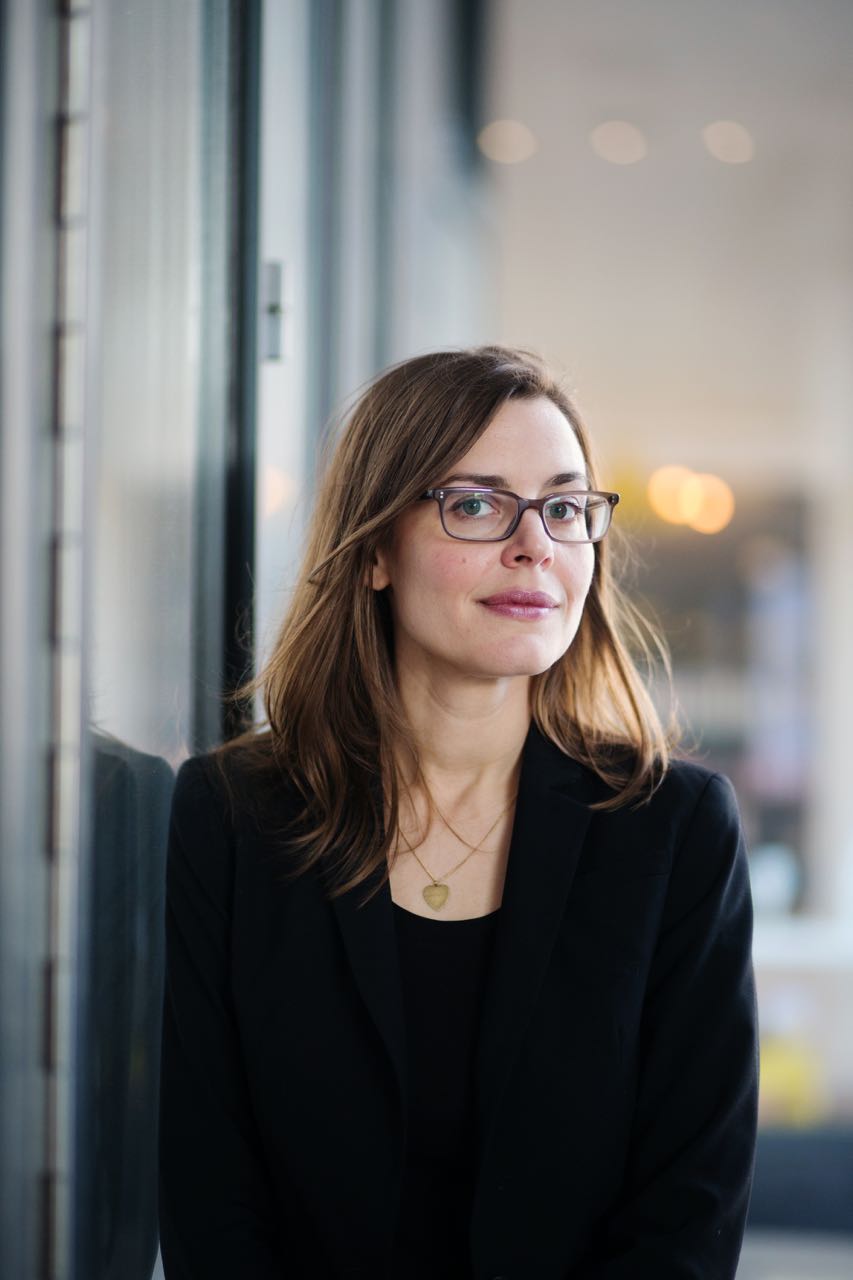
I was reading in Signature Stories [Signature Theatre’s magazine] an interview with you where you talk about the musicality of the text. Suzan-Lori is very, very musical and uses that in her writing process, not just with music performed in the show but in terms of play structure. As a director, how do you work with that? Especially making sure information can still be heard and the audience doesn’t get too taken by the rhythm of it and stops hearing the actual words.
That’s where the fact that mostly I direct musicals is relevant because in a musical, that’s what you’re trying to do, as well. You’re trying to make sure that the story and the actual lyrics and words are hear-able. I feel there’s a brain diagnostic or processing diagnostic that you have to do, which is trying to be as realistic as possible about the way that the loudness of one element affects the attention to another. So that’s why it’s such a delicate balance and why trying to hold all these things in concert with one another is such an awesome challenge.
When you were working with the actors, what was it like getting them to hit that extremely specific tone of the performative aspect of what they’re doing, which is also, in this case, a theme of the play, with also making sure that it’s supported by having a lot going on underneath?
I think that the casting process was so important because I love these actors. I think they’re extraordinary. All of the actors in the show have an innate understanding of style and of the idea that truthful performance does not always mean naturalism. There is truth to be located in a performance that is heightened and that is stylized. I think they came to the table with a lot of those tools that we then worked with together, but I don’t think there would have been a possibility of going from scratch. They brought so much of that just in terms of who they are. I think that’s why [it was important to] be very clear from the outset about our intentions of how we wanted the play to live, and the beauty and the complexity and the rigor and the deep well of very uncomfortable emotions that the play taps into. That we were going to allow all of that to coexist. I very much believe that when you’re working on a play that has a story with sadness and that involves facing upsetting aspects of human behavior, it’s extra important to really love the people that you’re making it with and to have joyful fun people in the rehearsal room, because it’s almost like you have to be brave together. You have to find a way to roll up your sleeves and go there. I think that means everybody needs to feel safe and supported and people need to have the freedom to laugh at themselves. That was important to me in terms of the kind of rehearsal room that we put together.
With that all said, how do you weave that into the musicality and the pacing?
One of the ways the musicality works is that it is like keeping a ball in the air—if someone doesn’t catch it, you really feel that thud in a dramatic way. There’s a muscularity of the rhythm of the storytelling and a virtuosity of the performers who are telling the story and carrying it forward, and even the spells in her writing, which are these moments where it lists the character’s name, and it’s a space that Suzan-Lori has created in the text where something happens between these actors, or between this character and the audience, or between this character and God. Just that there’s a space for something to happen. My experience has been even those rests, even those spells, have an internal rhythm. You feel that it’s off if it goes on a second too long or if it’s a second too short, it feels like a measure of music that’s missing a beat. You feel it. The stage manager, Evangeline Whitlock, has talked about how she calls the show. When she teaches stage management, she calls Suzan-Lori’s cues “heart cues,” which is that she, as a stage manager and me as a director, in the making of it, have to be basically breathing with the actors and we have to be completely synched up with them even in terms of our heartbeats so that we can feel together when the next shift occurs.
I didn’t know the play before seeing it, and one of the things that I was surprised by is that in the end one of the themes that popped up so much was, like you were saying, the theme of love. I was wondering how you unraveled that?
As I mentioned before, Suzan-Lori talked about love being at the center of her idea of what this play is, and that she felt that the play came from love also. She felt she wrote it from a place of love, and love for and of humanity, and a love of the world. I’m not interested in plays that are just punching people in the face because life is hard enough. The world has plenty of discord and misunderstanding and tragedy to it. Life has all of those things. Mostly this is not the type of show that I do. For me, it’s really important that an inquiry into some of the most inhumane and cruel human behaviors take love into consideration and, in a way, has love as the bed of it. I also think that was part of what was so unique and extremely specific about Suzan-Lori’s take on this character. I think anybody writing from this history probably would have needed to address the exploitation part of it. But I think where you see one of the many aspects of her genius as a writer is bringing that element of love to the surface.
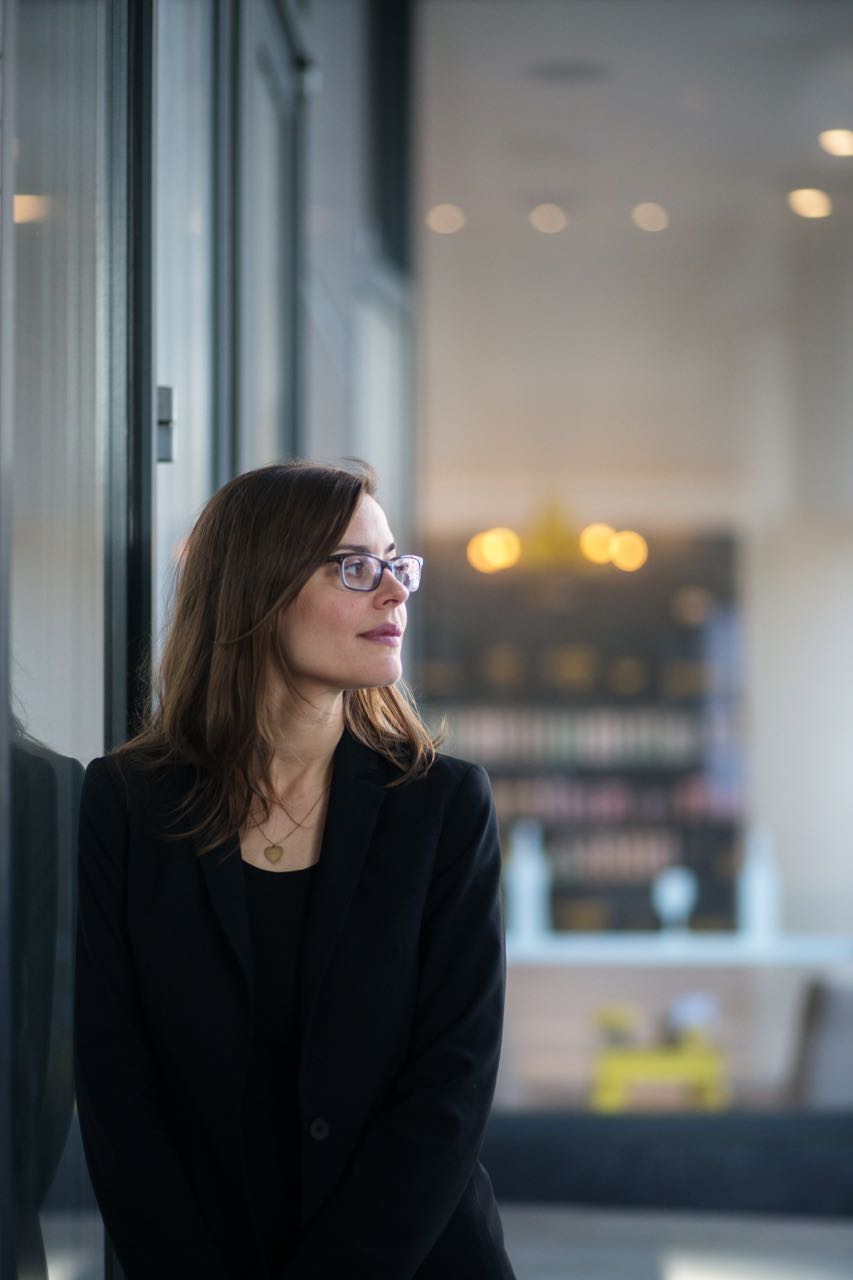
I want to talk about your work in general a little bit. What other areas of culture affect your process and the work you choose to do?
Public Works, which I would say in a lot of ways is the most overt manifestation of my artistic and personal values, I think of as being very much a unity of influences from my childhood. I’m from Baton Rouge, Louisiana, and I feel like the combination of church, essentially sacredness of church, and very populist spectacles like Mardi Gras and football, are the elements that cooked together to make me as an artist. I think those elements are, in various ways, present in all of my work.
Are you visual?
Yes. Very. My brain functions in a very visual way. I think my work is pretty physical as well. Also, as part of the idea of truth being found in the extremity of beauty and comedy and stories that have a fable-like quality that are non-naturalistic. I think I would not ever aspire to direct a play that has a couch and a conversation. I would not feel equipped to direct that play because the nature of my interest and imagination and impulses are much wilder or more hyper-colored than that.
How does your spiritual life affect your work?
It’s very wholly integrated. The lens through which I view the world is fundamentally about the presence of a divine spark in all people in this world amidst great brokenness and despair. I believe very much in the idea that the Kingdom of Heaven is here—all around us already, all the time—and that we are in it. And that there is a chance—certainly in the act of creation that is the making of a work of art, and also the act of creation that is the making of a rehearsal room—the making of a culture of a space that people are gathering in with purpose to do something in a unified manner, that act of creation, that act of making, both of the work and the space and the dynamic, has a holiness to it. I don’t mean that to sound sanctimonious because my ideas about God and about theatre, obviously for anyone who’s seen Venus, do not shy away from there being a bunch of shit in life and messiness in humanity. The human condition has boogers streamed across our face. It isn’t a pristine thing and it doesn’t need to be. But that doesn’t mean that it isn’t gorgeous. I think there’s a chance to celebrate people and life that I’m fundamentally interested in.
Have you found that it’s ever been a challenge to stick to your belief system in this industry? I don’t mean in a dogmatic way or a proselytizing way, but your own internal sense of things.
Yes. I think there are aspects of the industry that are dehumanizing and crushing. One of the reasons that I love Public Works and feel a great sense of wholeness and satisfaction inside that process is that I feel like there can be a tendency for selfishness or smallness to creep up when people are trying to make something together. I think the reality is that every person has the ability to essentially get over themselves and put the focus on service and put the focus on, “this isn’t about me. This is actually about the story that we’re trying to tell together. This is about my partners in the telling of this story. Therefore, I’m going to get over myself, and I’m going to bring some generosity and some love and some humor to this situation.” I think that there are factors of the industry as a whole that fight against that and make it hard for people to do, but I think the possibility for it is always there. What I’ve been amazed by over and over again is how consistently artists want to do that and are able to transcend themselves in service of this bigger story and this bigger human effort.
For Public Works, when you started it and as it’s grown, how have you dealt with the political lens through which it is viewed? Not that all theatre isn’t political, but in that situation, there’s a very specific thing that isn’t even necessarily from what the program is doing, but what is projected onto it.
I think for me, Public Works is political in terms of its form, not its content. Maybe some of the time the content becomes political, but we are doing versions of Shakespeare and The Odyssey, stories like that. One of the things that Public Works is not, is it’s not a trauma-based model in which people are telling their own sociologically real stories. It’s operating under this other idea of politics, which is that actually there’s a plane of existence of imagination where people from very different experiences can meet and can very much meet as equals in that space. There’s a politics of joy that has its own edge.
When I interviewed Madeleine George, we were talking about community and how community theatre has become a pejorative term in New York, and how that is so funny, especially now when people are talking about what art can do in the Trump age, since community theatre is so much more ubiquitous than Broadway for so many people.
I love community theatre. I hate the assumption that community theatre in any way connotes a lack of artistic rigor or a lack of artistic excellence. It is false to me. I think theatre at its core, no matter what scale it’s being done at and what level of resources is invested in it, is a communal act. Even in the greatest art, it’s really walking an edge of silliness all the time. Even extremely profound moments on stage are, to me, not that far away from essentially Waiting for Guffman. It’s not that different. This is my belief. One of the things that brings me delight about working on theatre is the absurdity of the task, and the fact that we have this moment in Venus when there’s this court judge scene, where some of the judges have to be getting in and out of the judge wigs when they are becoming witnesses in the trial. There’s a whole business of getting in and out of the wigs that Danny has beautifully choreographed. One of the things that makes me chuckle the most when I’m watching the show is when there’s a wig malfunction and someone’s wig does not get back on in the correct way. On one hand, I know that my job as a director is to try to make sure that the wigs do get back on in a correct way because that is the intent, but also it points to the pleasure of live theatre which is, to me, when someone’s wig is a little bit off. That is it’s own kind of delicious. Especially if the actor, as they all do, is continuing on with their intention in a very amazing way. I don’t desire to be working on film where we edit out that part. I’m actually really happy to see that.
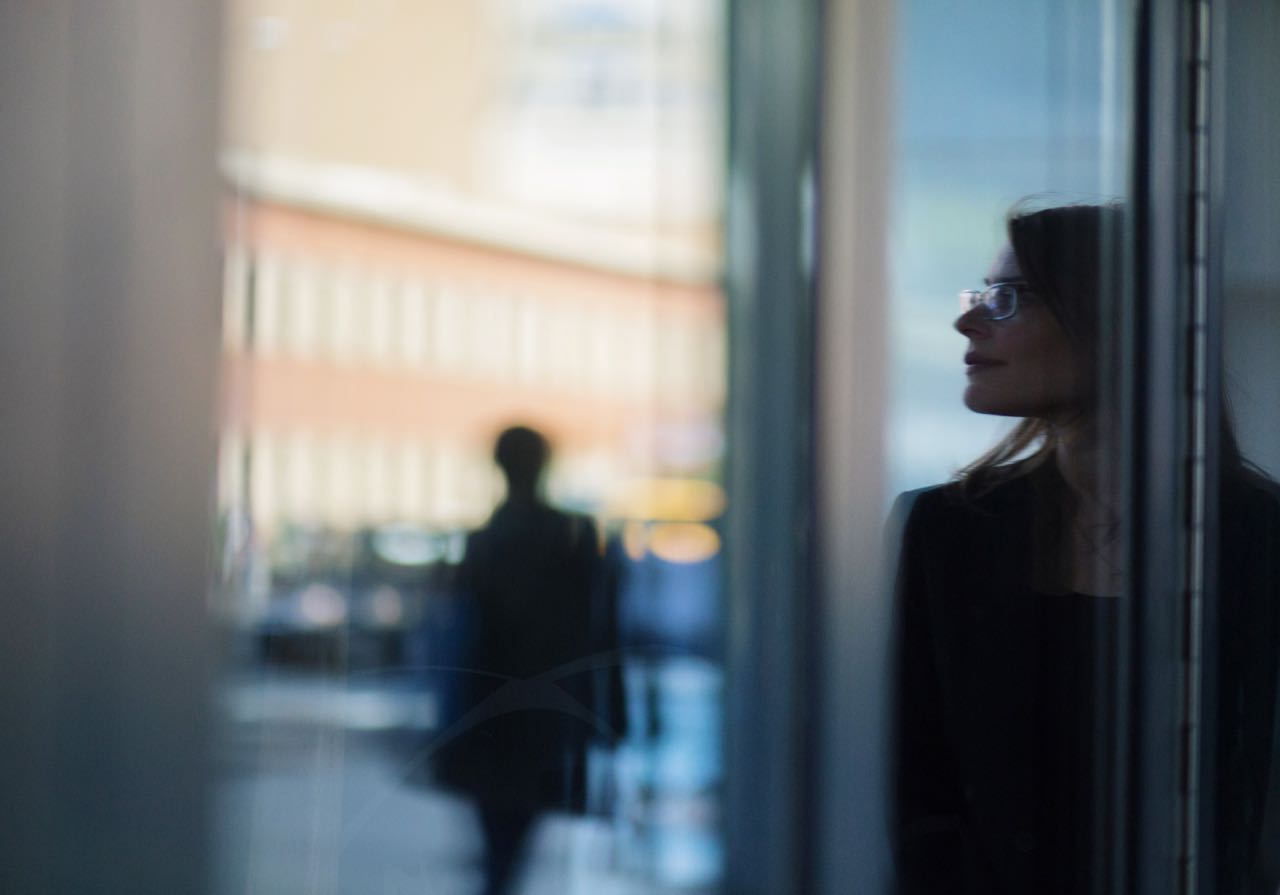
Do you feel or have you felt in the past like you’ve had to give more thought to how you present yourself either in meetings or in the rehearsal room in order to be taken seriously?
Yes. I have a ten-month-old baby right now. This is the third show that I’ve directed since he’s been born. I am aware of the container that I come in and the societal constructs around that. Of course it matters. The fact that in this particular historical moment, there is a conversation that is happening around, “Did misogyny ‘play a role’ in what happened with Hillary?” I think it’s pretty hard to dispute that it did play a role. We all live in that world. I long for it to progress and change because I think that it is oppressive for all people, not just women. I think it’s oppressive for people of any gender or orientation.
I’m assuming childcare for a director has to be an extreme challenge.
Yes, it is. The hours are really tough. I definitely feel like the hours are constructed based on the assumption that not only do you not have a child, but in fact you do not have any person depending on you for anything—other than the show depending on you. But obviously that’s lame. The industry is much richer for the presence of people with—not just with children, but with people who care for their elderly parents, people who have attachments to the world, people who are not islands. I think there has been a little bit of progress around understanding some of these issues, and I long for there to be a hell of a lot more.
What’s something the theatre community could do to help with the childcare situation?
I think that the standard workweek should be five days and not six. There, to me, is no reason that as a holistic industry, we’ve just accepted that the baseline is people working six days a week and not five. I think that is not healthy for people, and it puts an inordinate burden on anyone who has people depending on them. It’s really absurd. It’s also really cultivating unhealthy attitudes and behaviors.
What is something you think the theatre industry can do to improve gender equality?
I think placing a higher value on listening. Listening to the content of what people say and trying to do that with some humility. It’s like if you actually listen to what women say and their ideas, they’re amazing, and there could be no argument that they are not as qualified or as anything as their male counterparts. I think listening is a skill that has to be cultivated. I have an infant son, and learning how to listen is something you have to work at. Even understanding that there are other leadership styles that are no less strong and that result in excellence that don’t involve bullying and don’t involve talking over people.

